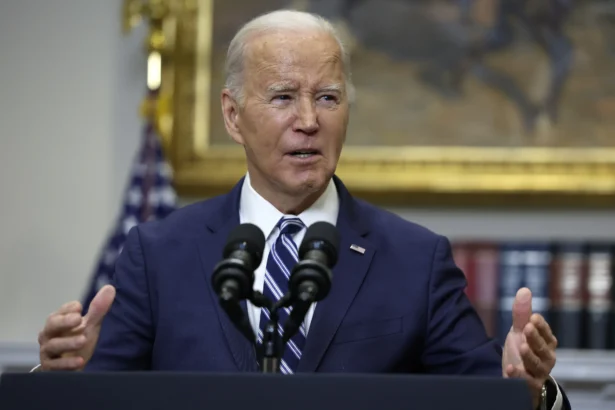House lawmakers are forming a bipartisan task force to explore how Congress can bolster safety issues and emerging threats surrounding the growing development and use of artificial intelligence (AI).
Speaker Mike Johnson (R-La.) and Minority Leader Hakeem Jeffries (D-N.Y.) said in a Feb. 20 press release that they have each appointed 12 members to the bipartisan Task Force on Artificial Intelligence (AI), which will explore potential legislation to address concerns relating to AI.
Each of the 24 members appointed to the task force represents “key committees of jurisdiction,” and will be jointly led by Republican chairman Jay Obernolte (R-Calif.) and Democratic co-chair Ted Lieu (D-Calif.), both of whom have experience in AI, lawmakers said.
Mr. Obernolte earned his master’s degree in AI and owns a video game development company while Mr. Lieu last year used the chatbot ChatGPT to write a bill aimed at regulating AI, NBC News reports.
The task force will be responsible for writing a comprehensive report that will include guiding principles, recommendations, and bipartisan policy proposals on how the United States can maintain leadership in AI innovation while safeguarding against threats posed by the fast-moving technology.
The report will be developed in consultation with committees of jurisdiction, the two lawmakers said.
“Because advancements in artificial intelligence have the potential to rapidly transform our economy and our society, it is important for Congress to work in a bipartisan manner to understand and plan for both the promises and the complexities of this transformative technology,” Speaker Mike Johnson said.
“As we look to the future, Congress must continue to encourage innovation and maintain our country’s competitive edge, protect our national security, and carefully consider what guardrails may be needed to ensure the development of safe and trustworthy technology,” he added.
AI Threats to National Security
Elsewhere, Mr. Jeffries noted that fast-rising AI technology “presents a unique set of challenges” to U.S. national security and leaders need to focus on ensuring “bad actors” do not exploit it.
“The members appointed to this task force bring a wide range of experience and expertise across the committees of jurisdiction and I look forward to working with them to tackle these issues in a bipartisan way,” the Democrat said.
Experts have repeatedly raised concerns over the growing advancement of AI and its potential impacts on the labor market, with Goldman Sachs economists warning last year that two-thirds of occupations across America could become partially automated.
Additionally, the use of AI to spread misinformation and interfere with elections has sparked concern among both Democrats and Republicans, particularly after fake phone calls were made to numerous residents in New Hampshire in January.
The robocalls featured an AI-generated clone of President Biden’s voice.

FCC Declares AI-Generated Voices in Calls Illegal
The phone calls, which encouraged residents not to vote in the Jan. 23 New Hampshire primary, were later traced back to a Texas-based firm. The incident is not the first time robocalls have been used to target voters.
In 2020, two conservative provocateurs—John M. Burkman, and Jacob Alexander Wohl—allegedly made more than 1,100 unlawful robocalls warning people that voting by mail could lead to their personal information being published on a public database used by law enforcement officials to track down old warrants and by credit card companies to collect outstanding debts.
The Federal Communications Commission (FCC) subsequently imposed a $5.1 million fine on the two men for violating the Telephone Consumer Protection Act.
Earlier this month, the FCC declared that phone calls made with AI-generated voices are illegal, marking a change from the previous legal stance which allowed prosecutors to target the outcomes of unwanted AI-voice-generated robocalls but not the act of using AI to generate the voice calls.
Despite the ongoing concerns regarding the growing advancement and risks of AI, Congress has yet to pass legislation addressing the continued threats, although multiple lawmakers have introduced various bills aimed at doing just that.
Reuters contributed to this report.
From The Epoch Times

